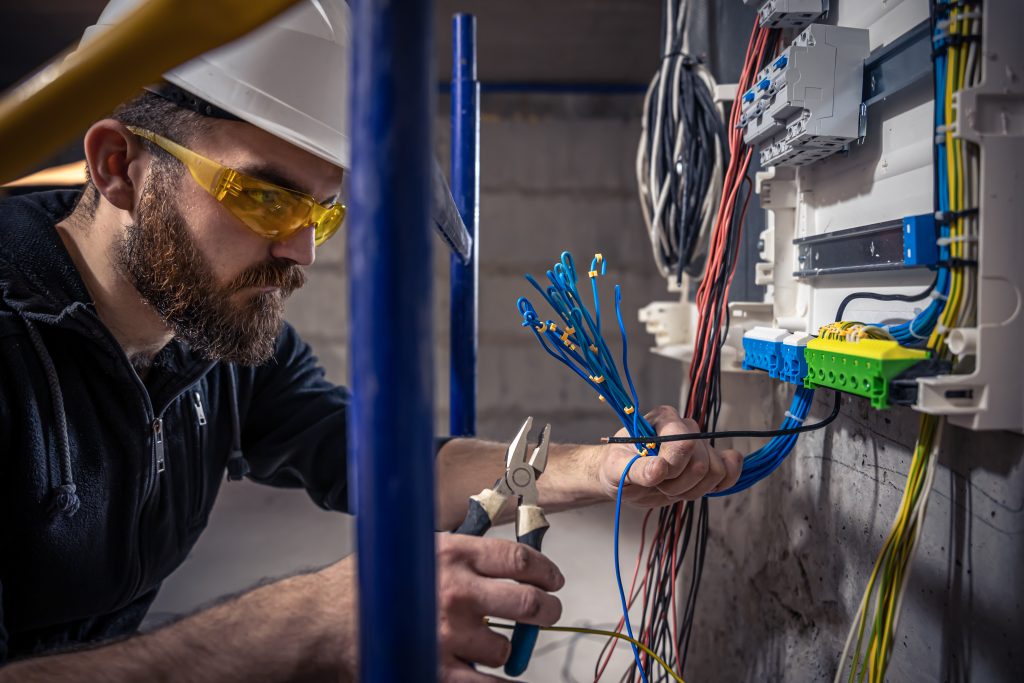
A BMS engineer (building management system engineer) is a professional who designs, installs, and maintains building management systems (BMS). A BMS is a computer-based system that monitors and controls the heating, ventilation, air conditioning, lighting, security, and fire safety systems in a building. A BMS engineer must have a strong understanding of mechanical and electrical systems, as well as networking and computer systems. They must be able to troubleshoot problems and have excellent customer service skills. If you’re interested in becoming a BMS engineer, read on to learn more about what the job entails and what you can expect.
A building management system (BMS) is a computerized system that regulates and controls the mechanical, electrical and lighting systems in a building. BMS engineers design, install, operate and maintain these systems.
Building management systems are used in office buildings, hotels, hospitals, factories and other types of commercial buildings. They help to optimize the use of energy and improve the comfort of occupants. BMS systems can also be used to monitor and control security systems, fire alarms and other safety systems.
The role of a BMS engineer is to ensure that the building management system is installed correctly and that it operates effectively. They also provide support and maintenance for the system. In some cases, BMS engineers may also be involved in the design of new building management systems.
A BMS engineer is responsible for designing and maintaining the systems that control the environment within a building. This can include heating, ventilation, air conditioning, lighting, security, and fire safety systems. A BMS engineer must have a detailed understanding of how these systems work together to create a comfortable and safe environment for occupants.
BMS engineers work with a variety of stakeholders to ensure that the systems they design meet the specific needs of the customer. They must be able to effectively communicate with architects, engineers, facility managers, and other professionals to ensure that the system meets all expectations. In addition to their technical knowledge, BMS engineers must also be able to project manage and coordinate the installation of new systems.
As a BMS engineer, you will be responsible for designing, developing, and maintaining the building management system (BMS) for a commercial or industrial facility. The BMS is a computer-based system that controls and monitors the building’s mechanical and electrical equipment, including HVAC, lighting, security, and fire systems.
You will work closely with the facility’s engineering staff to ensure that the BMS meets the needs of the occupants and complies with all applicable codes and regulations. In addition to your technical knowledge, you will also need strong communication and project management skills to be successful in this role.
In order to be a BMS engineer, one must have comprehensive knowledge of building management systems and their various components. They must also be able to install, maintain, and operate these systems. Furthermore, BMS engineers need to have excellent problem-solving skills as they are often required to troubleshoot issues that may arise with the system. Finally, good written and communication skills are essential in this role as they may need to provide reports or instructions to other staff members.
A BEMS Engineer is responsible for the installation, maintenance and operation of building energy management systems. They work with a variety of stakeholders to ensure the efficient use of energy in buildings, including developing and implementing energy conservation plans.
BEMS Engineers typically have a background in engineering, with many holding a degree in mechanical or electrical engineering. In addition to their technical skills, they must also be able to effectively communicate with Non-Technical staff and understand the business needs of their clients.
A BMS engineer is responsible for the maintenance and operation of building management systems. They work closely with other engineers and technicians to ensure that the systems are running smoothly and efficiently. In many cases, they also provide training to customers or clients on how to use the system. BMS engineers typically have a bachelor’s degree in engineering or a related field.

Copyright © by BMS Control Systems Limited 2023. All right reserved. Company No. 05899420
